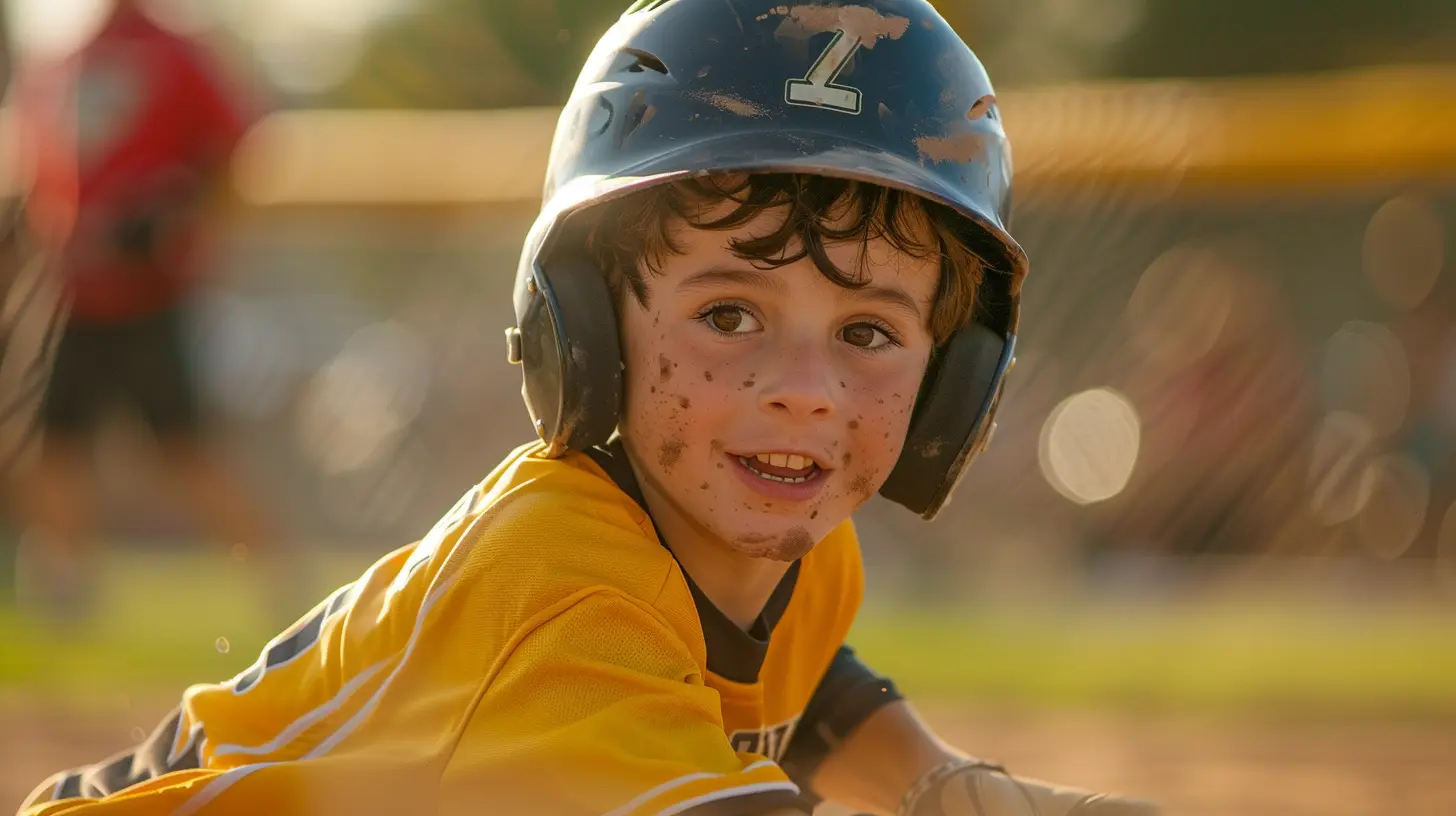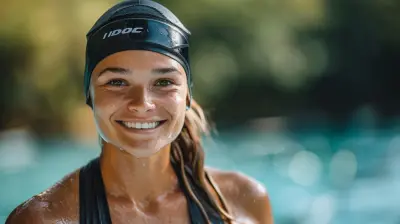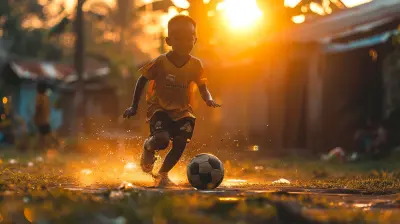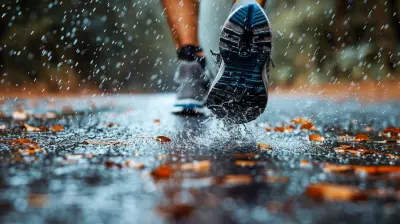Understanding the Physical and Emotional Development of Young Athletes
19 May 2025
Being a young athlete is more than just running drills, scoring goals, and winning medals. It’s a full-blown rollercoaster ride—both physically and emotionally. From growth spurts to game-day nerves, young athletes experience changes that shape them into future champions.
So, what really happens behind the scenes as kids grow into athletic powerhouses? Buckle up, because we’re diving deep into the physical and emotional development of young athletes—breaking down the highs, the lows, and everything in between. 
The Physical Evolution of Young Athletes
Growth Spurts: The Good, The Bad, and The Awkward
Ah, puberty. One minute, your kid is the fastest on the team; the next, they’re tripping over their own feet. Growth spurts hit hard and fast, affecting coordination, speed, and even flexibility.During these periods, bones grow rapidly, often faster than muscles and tendons can keep up. That’s why young athletes may experience tightness, reduced agility, or even temporary clumsiness. And let’s not forget the infamous Osgood-Schlatter disease—the knee pain that haunts young runners and jumpers.
So, what’s the solution? Stretching, strength training, and patience! Coaches and parents need to focus on mobility and injury prevention, ensuring long-term athletic success.
Building Strength Without Breaking Young Bodies
When kids start lifting weights, some adults panic—“Aren’t they too young for that?” Not necessarily. Strength training is not about bulking up; it's about building stability, injury resilience, and proper movement mechanics.However, here’s the golden rule: form first, weight later. Bodyweight exercises like squats, lunges, and push-ups work wonders before jumping into heavier resistance training. Oh, and let’s not forget core strength—because, without it, everything else crumbles like a house of cards.
Endurance and Stamina: The Long Game
No kid is born with marathon-ready lungs. Endurance develops over time, and structured training plays a huge role. The key? Progressive overload—gradually increasing intensity without overtraining.The biggest mistake? Ignoring rest. Overtraining can lead to burnout, injuries, and even heart issues. Young athletes MUST have proper recovery periods, including sleep, hydration, and nutrition. Speaking of which…
The Power of Nutrition: Fueling the Machine
You wouldn’t put cheap fuel in a Ferrari, would you? Then why load young athletes with junk food and expect peak performance? Proper nutrition is the backbone of athletic success.- Carbs = Energy (Think whole grains, fruits, and veggies, not just chips and soda.)
- Protein = Muscle repair (Hello, lean meats, eggs, beans, and dairy!)
- Fats = Brain power (Avocados, nuts, and olive oil are your friends.)
- Hydration = The MVP (Dehydrated athletes = sluggish and sloppy performance.)
Nutrition isn’t about strict diets; it’s about balance and consistency. Teach young athletes to eat for performance, not just for taste. 
The Emotional Rollercoaster of Young Athletes
Pressure to Perform: A Silent Battle
Let’s be real—kids feel pressure. Whether from parents, coaches, or teammates, expectations can weigh heavy on their young shoulders. The desire to win, improve, and impress can lead to self-doubt, anxiety, and even burnout.So, how do we help? Simple: Support over stress. Encouragement over criticism. Growth over perfection. Let kids enjoy the journey without making every game feel like the Super Bowl.
Confidence: Finding the Sweet Spot
Confidence isn’t about thinking you’re the best—it’s about believing in your ability to improve. Ever see a kid dominate practice but freeze during games? That’s a confidence issue.The trick? Celebrate small wins. Confidence builds one success at a time. Did they finally master that tricky dribble move? Boom—mini victory. Crushed a personal best time? Another win. When kids acknowledge progress, confidence skyrockets.
Handling Losses Like a Champ
Losing sucks. No sugarcoating that. But here’s the thing—failure is just delayed success. Champions aren’t made from winning all the time; they’re built from learning how to bounce back.Teach young athletes to analyze losses, not dwell on them. What went wrong? What can be improved? What’s the game plan for next time? When kids see losses as lessons rather than personal flaws, they develop mental toughness—an absolute game-changer.
Balancing Sports and Life
Sports are great. But sports + life balance? Even better. Young athletes need time to be kids—hang with friends, binge their favorite shows, or even just unwind without a stopwatch timing them.Burnout is real, and too much sports, too soon can lead to early dropouts. Encourage young athletes to enjoy hobbies outside of the game. This prevents mental fatigue and actually makes them stronger competitors in the long run. 
The Role of Coaches and Parents in Development
Coaches: More Than Just Tactics
A great coach isn’t just about strategy and stats—they’re mentors, motivators, and sometimes even therapists. The best ones:- Focus on long-term development, not just short-term wins.
- Adapt to each athlete’s unique needs.
- Teach both skills AND life lessons (because teamwork and resilience matter off the field too).
Parents: Supporters, Not Pressure Cookers
Parents, let’s have a heart-to-heart. Cheering is great; pressuring is not. If your kid genuinely loves the sport, support them. If they’re losing passion, don’t force it.Athletic success shouldn’t come at the cost of a child’s happiness or mental health. Be there for them through the wins and the losses, and trust that their journey—whatever it looks like—will be enough. 
Final Thoughts: Let Kids Be Kids (and Athletes, Too!)
The development of young athletes isn’t just about speed, strength, and skill—it’s about molding resilient, confident, and happy individuals. The physical and emotional changes they go through are all part of the process.Yes, competition matters. Yes, hard work is essential. But at the end of the day, the ultimate goal is growth, not just trophies. So let’s support young athletes in a way that develops their bodies, strengthens their minds, and fuels their love for the game.
Because if we do that? We’re not just shaping great athletes—we’re creating future legends.
all images in this post were generated using AI tools
Category:
Youth SportsAuthor:

Uziel Franco
Discussion
rate this article
3 comments
Uzi Vance
Fascinating insights! How do emotional factors impact young athletes' performance and overall well-being?
May 23, 2025 at 3:29 AM

Uziel Franco
Emotional factors play a crucial role in young athletes' performance and well-being. Positive emotions can enhance focus and motivation, while negative emotions may lead to anxiety and decreased performance. Supporting their emotional development is essential for their overall growth and success in sports.
Adeline Snyder
Thank you for this insightful article! It’s crucial to recognize the holistic development of young athletes. Balancing physical skills with emotional well-being can truly shape not just better players, but also healthier individuals. I appreciate the attention to this important topic!
May 21, 2025 at 2:48 AM

Uziel Franco
Thank you for your thoughtful comment! I'm glad you found the article insightful and appreciate your emphasis on the importance of holistic development in young athletes.
Theodore McLaurin
Great article! It’s so important to recognize the balance between physical skills and emotional growth in young athletes. Nurturing both can lead to a healthier, more enjoyable sports experience for them. Keep sharing this vital insight!
May 19, 2025 at 4:17 AM

Uziel Franco
Thank you for your kind words! I completely agree—balancing both physical and emotional growth is essential for young athletes' overall development.



![The Power and Precision of [Player Name]: A Breakdown of Their Game](/pictures/blog/small/the-power-and-precision-of-player-name-a-breakdown-of-their-game_4.webp)